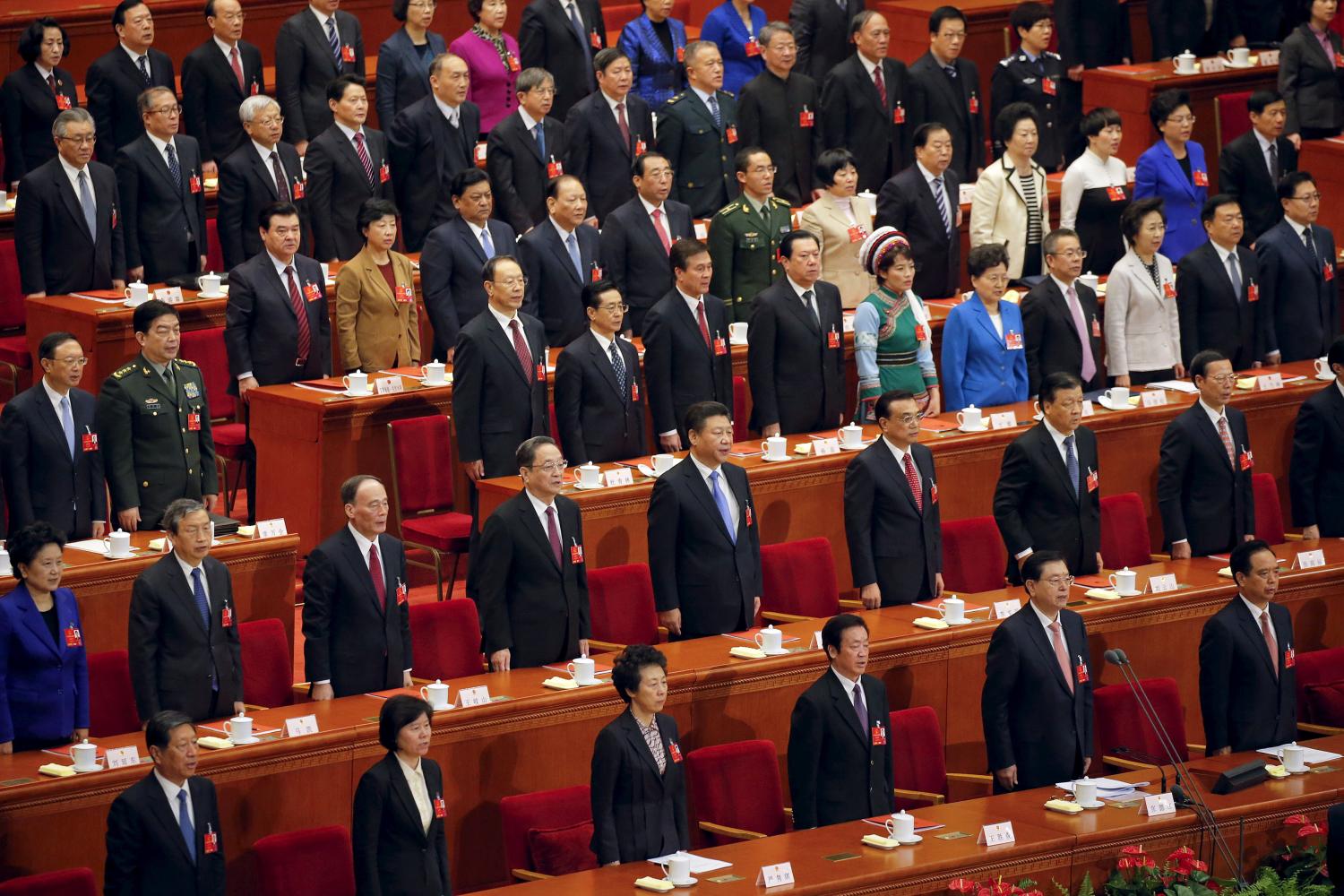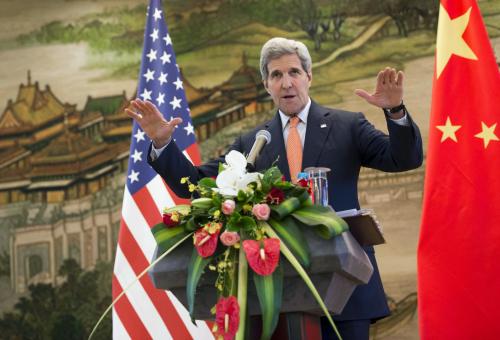Content from the Brookings-Tsinghua Public Policy Center is now archived. Since October 1, 2020, Brookings has maintained a limited partnership with Tsinghua University School of Public Policy and Management that is intended to facilitate jointly organized dialogues, meetings, and/or events.
 China’s economic rise and growing global participation make it a critical factor in U.S. strategic calculations. But public perception of China in the United States has soured in the face of Chinese actions at home and abroad that seem to challenge U.S. ideals and interests. Western media have chronicled a persistent tightening since at least 2008 of the space within China’s borders for policy debate, social activism, rights lawyering, academic discourse, and investigative reporting, which some analysts maintain has increased and become more institutionalized since Xi Jinping became general secretary of the Chinese Communist Party (CCP) in November 2012.
China’s economic rise and growing global participation make it a critical factor in U.S. strategic calculations. But public perception of China in the United States has soured in the face of Chinese actions at home and abroad that seem to challenge U.S. ideals and interests. Western media have chronicled a persistent tightening since at least 2008 of the space within China’s borders for policy debate, social activism, rights lawyering, academic discourse, and investigative reporting, which some analysts maintain has increased and become more institutionalized since Xi Jinping became general secretary of the Chinese Communist Party (CCP) in November 2012.
Yet, the CCP is simultaneously engaged in a long-term “reinventing government” project to modernize China’s governance tools and institutions to accommodate a rapidly changing society with a more market-oriented economy. Faced with widespread environmental degradation, food safety scandals, illegal land seizures, fraud and corruption, ethnic unrest, social protests, and a fundamental lack of trust within Chinese society and between the government and its people, the Chinese leadership has come to regard law as essential to addressing the complex issues and diverse interests it faces. It has vowed to build a more law-based, transparent, participatory, and accountable government, to enhance both its effectiveness and its legitimacy.
This paper introduces some of China’s less-reported governance reforms, particularly the development of government transparency and public participation in decisionmaking under the rubric of open government. This open government project often conflicts with the CCP’s strong impulse to control and maintain its preeminent position in China’s legal and political systems. Even so, facts on the ground demonstrate that fundamental changes are taking place in China’s legal and governance arena. New values of transparency and participation are gradually being implemented and appear to be taking root in China’s complex, dynamic reality.
Because many of China’s new governance institutions are adapted from American and Western practices, they provide a case study of how engagement with the country is helping to promote positive domestic developments. Policymakers, companies, and organizations in the United States can help support and foster these positive developments in China for their mutual benefit through continued government-to-government programs and unofficial exchanges that share both best practices and lessons learned.
The Brookings Institution is committed to quality, independence, and impact.
We are supported by a diverse array of funders. In line with our values and policies, each Brookings publication represents the sole views of its author(s).





